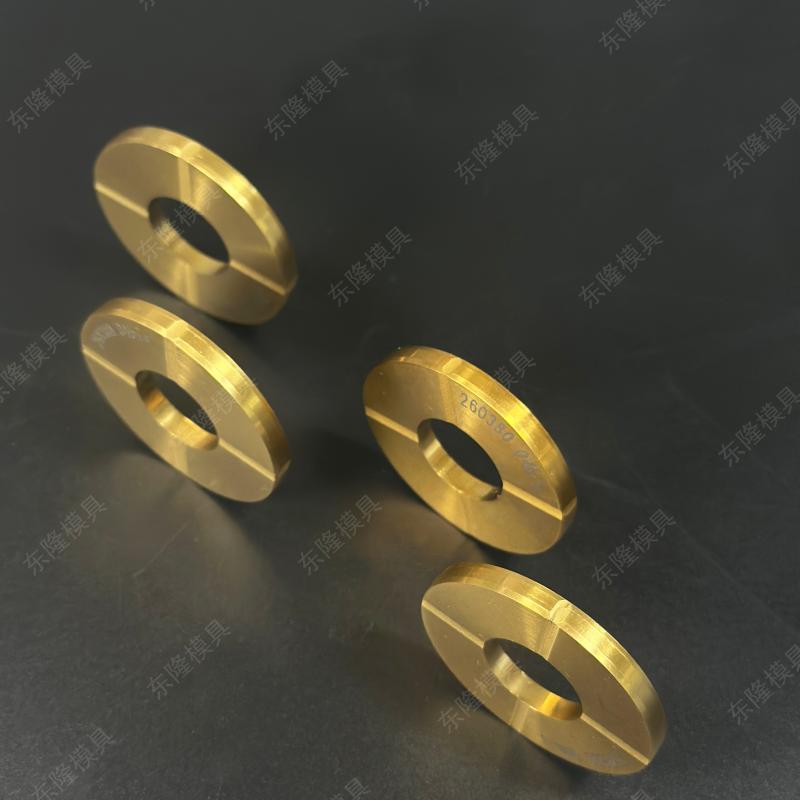In today’s manufacturing world, the need for custom Steel Die molds has become more important than ever. Industries such as automotive, electronics, and home appliances all rely heavily on these molds for precise, durable, and efficient production. Steel Die molds are versatile, designed to meet specific application requirements, and are crucial in shaping a wide range of materials into high-precision parts. In this article, we will explore the customization of Steel Die molds for various industrial applications, including the key considerations for each industry.

1. Steel Die Molds in the Automotive Industry
The automotive industry is one of the largest sectors that heavily relies on steel die molds for mass production. With increasing demand for precision parts, including body panels, engine components, and structural parts, the need for high-durability Steel Dies is paramount.
Customization in the automotive sector focuses on achieving complex geometries and high-quality surface finishes for parts like car doors, bumpers, and dashboards. Automotive steel die molds are often designed for high-volume production, requiring robust steel types such as tool steel and high-carbon steel, capable of withstanding high-pressure forming, as well as maintaining dimensional accuracy over extended production runs.
The customization process may also involve adding features such as cooling channels to control the temperature during the molding process and ensuring the dies can handle the heat and pressure involved in the production of automotive components. Advanced heat treatment techniques are also frequently used to increase the wear resistance of these molds.
2. Steel Die Molds for Electronics Manufacturing
In the electronics industry, precision is everything. Steel die molds are essential for producing intricate parts such as connectors, housings, and casings, which must meet strict dimensional tolerances. Steel die molds for electronics require high levels of precision because even the slightest deviation can affect the performance of sensitive electronic devices.
Customization for electronic die molds often involves the use of materials with high wear resistance and the ability to produce ultra-precise components. Mold designs must account for the complexity of the parts, which may involve creating fine details such as small holes, intricate channels, or delicate textures. Materials like high-carbon tool steel or H13 steel are commonly used in this industry due to their ability to withstand wear and heat during high-speed production cycles.
Another aspect of customization in this field is ensuring anti-corrosion features. As electronics often require parts that are exposed to humidity or other environmental factors, manufacturers may incorporate anti-corrosion treatments into the steel mold design to protect the integrity of the final product.
3. Steel Die Molds in the Home Appliance Industry
The home appliance industry demands steel die molds that can handle high volumes of parts, from refrigerator components to washing machine parts, and beyond. The parts produced need to be not only functional but aesthetically appealing, making the appearance of the steel die mold crucial in the design process.
Customization of steel die molds for the home appliance industry often focuses on creating lightweight yet durable parts, such as panels, covers, and structural elements. Steel molds used in this industry are usually designed to allow for smooth finishes, which help achieve the sleek, modern designs commonly associated with consumer goods. In some cases, injection molding may be used to produce components with complex geometries.
Die molds in this sector must also handle abrasive materials and the wear and tear that comes with continuous production cycles. Steel die mold maintenance is therefore key to ensuring longevity, especially in high-volume environments.
4. Choosing the Right Steel for Custom Die Molds
The choice of steel is critical in the customization process for different industrial applications. The steel die mold material must be selected based on factors such as:
Strength and Durability: High-strength steels like tool steel and H13 steel offer excellent resistance to wear and deformation, essential for heavy-duty applications such as the automotive industry.
Corrosion Resistance: For electronics and other industries where parts are exposed to environmental elements, corrosion-resistant steels are preferred.
Heat Resistance: For molds exposed to high temperatures, like in die casting or hot working processes, heat-resistant steels like H13 or S7 steel are commonly used.
Workability: The mold should be easy to machine, as customization often involves complex features like cooling channels or vents.
5. Customization Techniques for Steel Die Molds
The customization of steel die molds involves several advanced techniques that help meet the specific needs of each industry. These include:
3D Printing for Molds: For intricate or low-volume productions, manufacturers are increasingly turning to 3D printing to create molds quickly. This technique is ideal for testing designs and shortening lead times.
Advanced Heat Treatment: By heat treating steel, manufacturers can enhance the steel’s hardness and wear resistance, which is especially important for high-stress applications.
Surface Coating: Steel molds can also undergo surface treatments, such as PVD coating or nitride coating, to increase their durability and resistance to wear and corrosion.
6. The Future of Steel Die Molds: Trends and Innovations
As industries continue to evolve, the customization of steel die molds is also advancing. The integration of digital technologies, such as computer-aided design (CAD) and computer-aided manufacturing (CAM), allows for more precise mold designs and better control over production processes. Additionally, innovations in material science are constantly improving the types of steel used for die molds, providing enhanced performance, cost-effectiveness, and longer tool life.
Customization of steel die molds is an essential part of modern manufacturing, providing industries such as automotive, electronics, and home appliances with the tools necessary for precision, durability, and high-quality production. By choosing the right materials, incorporating advanced techniques, and understanding the specific requirements of each application, manufacturers can optimize their steel die molds for better performance and extended tool life. As technological advancements continue, we can expect even more innovations in the design and manufacturing of custom steel die molds, further improving the capabilities of modern production processes.











